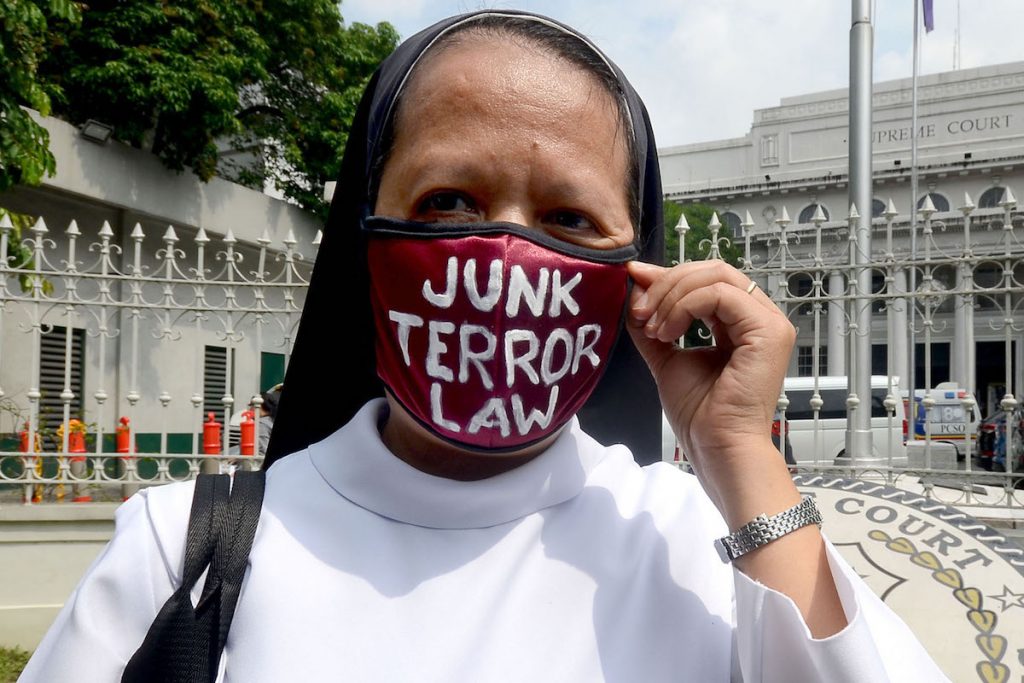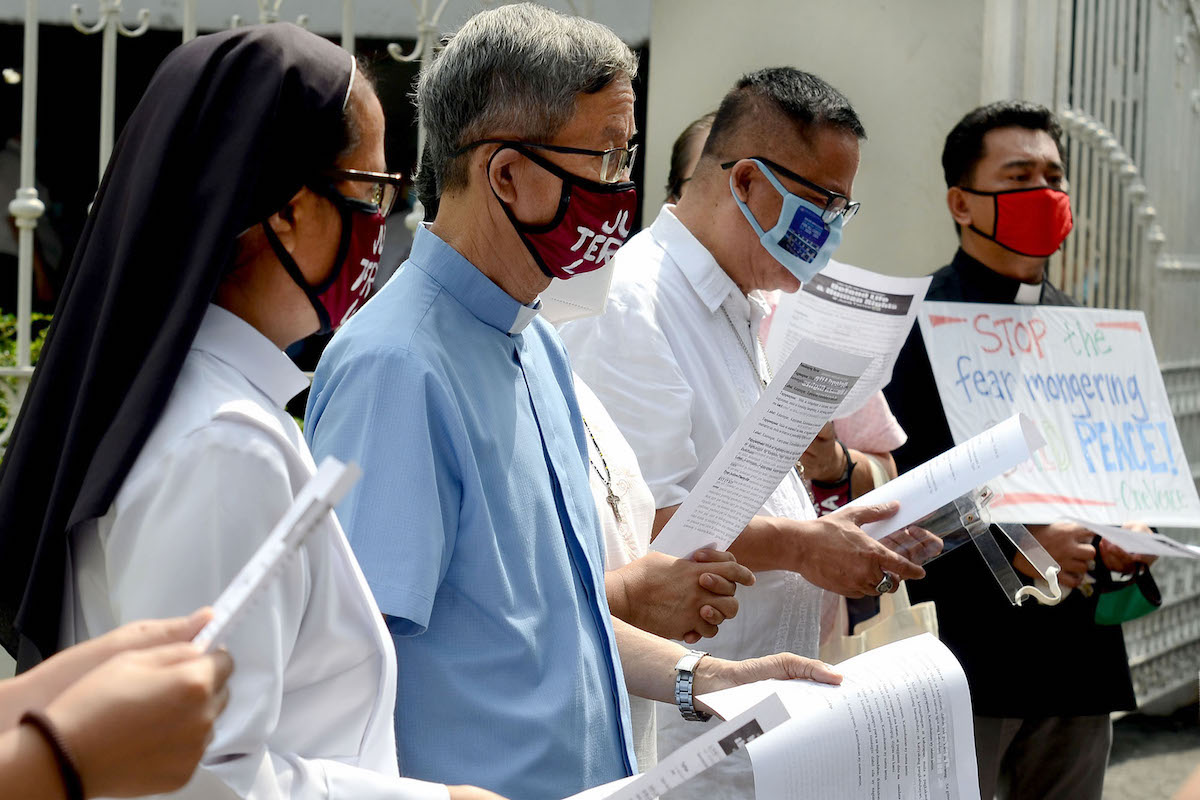Catholic and Protestant church leaders in the Philippines filed a petition on July 24 asking the Supreme Court to stop the implementation of the country’s new anti-terrorism law.
The church leaders joined other sectors who earlier filed several petitions aimed at the eventual declaration of the entire law as “unconstitutional.”
Citing “credible threat of prosecution,” the groups claimed outright legal standing and urged the Supreme Court to delve into the merits of the law immediately.
“We are concerned how the anti-terror law will shrink democratic space because of fear,” said Bishop Broderick Pabillo, apostolic administrator of the Archdiocese of Manila.
“This will affect the lives of many people and only weaken democracy in our country,” he said, adding that “anyone who dares to speak in dissent … will be affected” by the possible threats of the law.
Protestant Bishop Reuel Marigza, general secretary of the National Council of Churches in the Philippines, the church leaders are exercising their “prophetic and ministerial roles while also asserting our democratic rights as Filipinos.”
“Filing today is our expression of our deep concern for the rights of persons to criticize and articulate opposition no matter who leads the government,” said Bishop Marigza.
Bishop Gerardo Aliminaza of San Carlos said church ministries with the poor “can be misconstrued as terrorism, supporting terrorism, or inciting terrorism under the anti-terrorism law.”
“As responders to human strife and disasters, we are mandated by faith to respond to the human needs of the most disenfranchised and neglected,” said Bishop Rex Reyes Jr. of the Episcopal Diocese of Central Philippines.
“Under the anti-terror law, there is the fear that those who do could be labelled as terrorists, given its ambiguity. It is not only malignant, but has dire consequences,” he said.
Bishop Reyes said the anti-terror law allows far too much power for the Anti-Terror Council in defining and interpreting the provisions of the law, “making it vulnerable to violating human rights.”
“We fear this is a militarist method to stifle dissent and opposition, which is anti-people, anti-democracy, and outright tyrannical,” said the bishop.

Reverend Aldrin Penamora of the Philippine Council of Evangelical Churches said the unity of all Christian churches against the anti-terror law “reverberates with the diversity of faith articulations.”
“Each of the petitioners shares the common concern that the anti-terror law threatens civil liberties, including freedom of speech and expression in the Philippines,” he said.
In a statement, the Public Interest Law Center (PILC), which assisted the petitioners, said that in submitting their position before the court, the religious groups “are exercising their civic responsibilities against injustice and state repression.”
“Beyond giving prayers, they act now to correct state overreach, abuse, and injustice as they see in their areas of service and advocacy,” said Rachel Pastores, PILC managing counsel.
“The Church only wants peace and healing for all Filipinos,” she added.
The petitioners assailed the state’s expansive powers under the law, such as surveillance and collection of data, detention for 14 days after warrantless arrest, and designation of terrorists as incompatible and contrary to the 1987 Philippine Constitution.
The petitioners urged the High Court “to review and revisit the limited application of the void-for-vagueness doctrine to a facial challenge of a statute that infringes on free speech.”
The “vagueness” of the law exposes the petitioners, who are either part of different social advocacies or critics of anti-poor government policies, to a “credible threat of prosecution.”
“The law must be struck down as unconstitutional on its face without waiting for the threatened criminal prosecution to happen,” read the PILC statement.
The 97-page petition asked the High Court to declare the law’s “vagueness and overbreadth doctrines to penal statutes” as a violation of the due process clause.
Named respondents of the petitions were President Rodrigo R. Duterte, the Senate represented by Senator Vicente Sotto III, the House of Representatives represented by Speaker Alan Peter Cayetano, and Executive Secretary Salvador C. Medialdea as chairman of Anti-Terrorism Council.
“We are ready to defend all freedoms and rights — freedom of speech and expression, the right to privacy, the right to due process — which are all directly attacked by the Anti-Terrorism Act of 2020,” read a statement from the petitioners.







